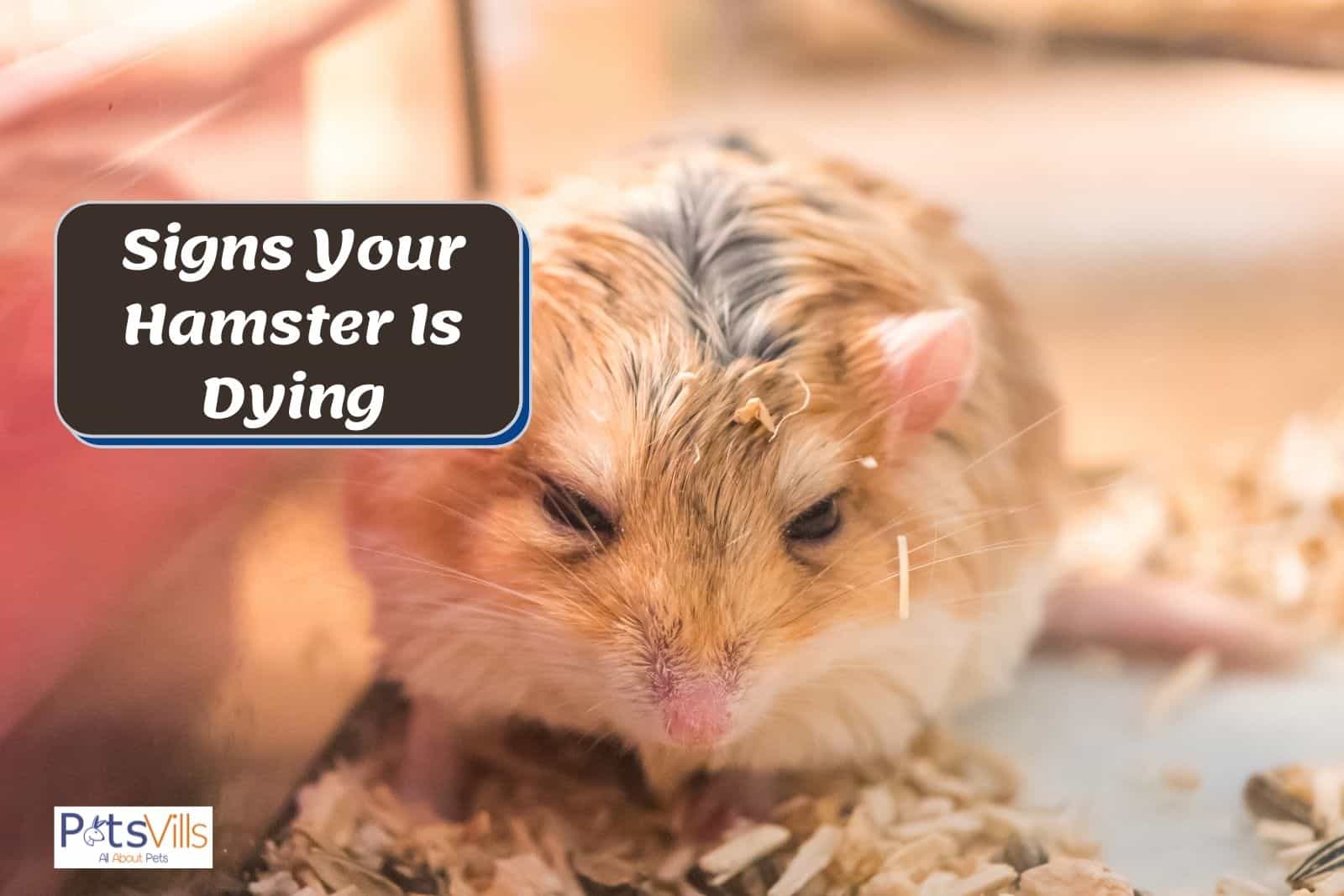Is your furry little friend not feeling quite, right? Have you noticed some changes in their eating habits or bowel movements? It could be that your hamster is experiencing gastrointestinal problems. But don’t worry – we’ve got you covered with tips and tricks to help your hamster feel better in no time. Let’s dive into the world of hamster health together.

1. Understanding Hamster GI Problems: Common Causes and Symptoms
Understanding Hamster GI Problems: Common Causes and Symptoms is the first section of this comprehensive guide that explores the digestive system problems in hamsters. The section delves into the most common causes of hamster diarrhea, constipation and other GI issues, such as C.difficile infection, parasites, bacterial infections, stress and dietary issues. The symptoms of these conditions are also discussed, such as loss of appetite, physical appearance changes, and typhlitis and colitis. By identifying these symptoms, hamster owners can take proactive steps to prevent or manage GI issues, such as providing a balanced diet, managing stress, and avoiding contaminated foods.
The guide also explores wet tail in hamsters, a serious condition that requires immediate veterinary attention. By understanding the common causes and symptoms of GI problems in hamsters, owners can help their pets maintain optimal digestive health and prevent serious illness.

2. How to Prevent Hamster Digestive Issues: Tips and Strategies
Preventing digestive issues in your furry friend is crucial to keeping them healthy and happy. One of the best ways to do this is by providing a balanced and fiber-rich diet. This means you should limit the amount of sugary and fatty foods and introduce more hay-based meals into their feeding routine. It’s also important to monitor their water intake and ensure they have access to fresh water at all times. Another key strategy is to create a stress-free environment for your hamster to live in.
This includes providing adequate space in their cage, keeping the cage clean and sanitized, and providing opportunities for exercise and mental stimulation. By following these tips and strategies, you can help keep your hamster’s digestive system healthy and prevent any potential issues from arising.

3. Identifying and Treating Hamster Diarrhea: A Comprehensive Guide
Hamster diarrhea is a common gastrointestinal problem that can be caused by a variety of disorders. It’s important to separate and isolate the affected hamster from other animals to prevent the spread of any potential infections. Treating hamster diarrhea should involve a supportive and aggressive approach to correct nutritional imbalances and provide proper care. The hamster should be provided with a warm and stress-free environment, fluid therapy, and nutritional support to help stabilize its condition. Precautions can be taken to prevent diarrhea from onset by lining the habitat with a few inches of hamster bedding or recycled paper.
If symptoms or behaviors of concern persist, it’s advisable to visit a veterinarian. Overall, taking a proactive approach to hamster health by adopting healthy dietary habits, avoiding contaminated foods, and managing stress can help to minimize and prevent gastrointestinal problems.

4. The Importance of a Balanced Hamster Diet for GI Health
A balanced diet is crucial for maintaining the gastrointestinal health of hamsters. As discussed in previous sections, hamsters require a diet high in fiber and containing both animal and plant-based proteins. Providing an appropriate diet can prevent gastrointestinal problems such as diarrhea and constipation. It is important to avoid overfeeding and choose a nutritionally enriched food brand. Treats should be given in moderation to prevent weight gain and nutritional deficiencies.
Additionally, antioxidants and probiotics should be included in their diet to boost their immune system. Maintaining a balanced diet can not only prevent digestive issues but also promote overall health and well-being for your furry friend.

5. Wet Tail in Hamsters: Causes, Symptoms, and Treatment Options
Hamster owners know all too well about the dangers of wet tail. Also known as proliferative ileitis, this condition is caused by stress and leads to severe diarrhea, and dehydration, and often results in a high mortality rate. The symptoms of wet tail include a wet and matted tail, runny stools, loss of appetite, and unkempt fur around the hind end. The only cure for wet tail is antibiotic treatment from a veterinarian, so owners should seek medical attention as soon as they notice any signs of the disease.
To prevent wet tail, owners should reduce stress levels in their hamsters by providing a comfortable, clean environment, a healthy diet, and reducing handling and disruptions to their daily routine. With proper care, owners can minimize the risk of their hamster developing wet tail and ensure that their pets remain healthy and happy.

6. The Role of Stress in Hamster GI Problems: How to Manage It
Stress can be a significant factor in hamster gastrointestinal problems. Factors that may contribute to stress in hamsters include changes in the environment, lack of exercise, and inadequate social interaction. Symptoms of stress-related GI issues include lack of appetite, diarrhea, and lethargy. Prevention and management strategies include providing a stable and comfortable environment for your hamster, providing ample opportunities for exercise and play, and ensuring adequate social interaction. Natural remedies such as calming herbs or pheromone-based products may also be helpful in reducing stress in hamsters.
It is important to monitor your hamster’s eating habits and bowel movements and seek veterinary care if symptoms persist. A balanced and healthy diet can also aid in the prevention and management of gastrointestinal issues in hamsters, making it essential to consider this in their daily nutritional requirements.

7. Natural Remedies for Hamster Digestive Issues: What Works and What Doesn’t
Looking for natural remedies to help alleviate your hamster’s digestive issues? It’s understandable to want to try home remedies before seeking veterinary care, but it’s important to do so with caution. Some remedies may not be effective, and others could potentially harm your pet. As mentioned earlier, ensuring your hamster has a balanced diet and access to fresh water can go a long way in preventing digestive problems.
Additionally, offering small amounts of fresh fruits and vegetables can aid in digestion. If your hamster is constipated, adding a small amount of olive oil to their food or giving them a piece of fresh papaya can help. However, never give your hamster any over-the-counter medications without consulting a veterinarian, as they can be toxic to them. When in doubt, seeking professional veterinary care is always the best option.

8. When to Take Your Hamster to the Vet for GI Problems: Warning Signs to Look Out For
When it comes to your hamster’s gastrointestinal health, it’s important to know when to seek veterinary care. Some warning signs to look out for include diarrhea, dehydration, weight loss, rough hair coat, and a swollen or bloated abdomen. If you notice any of these symptoms, it’s crucial to make an appointment with your veterinarian as soon as possible. Additionally, if your hamster appears to be in pain, is having trouble breathing, or is bleeding, it’s always a good idea to seek professional advice.
Respiratory disease is another common reason for hamsters to see the vet, so any sneezing or breathing problems should also be taken seriously. Remember, because hamsters are small and nocturnal, their early signs of illness are often overlooked or not noticed. It’s better to err on the side of caution and seek veterinary care sooner rather than later.

9. How to Avoid Contaminated Foods: Keeping Your Hamster Safe and Healthy
To keep your hamster healthy and safe, it’s important to avoid contaminated foods. This means not only feeding them the right kind of food but also storing it properly. Keeping food containers tightly closed and away from areas where you prepare or serve human food can help prevent contamination. Look for complete hamster food with optimal nutrients to maintain good digestive function, dental health and longevity. Provide suitable gnawing material to prevent teeth overgrowth.
It’s also important to wash your hands before handling your hamster’s food or water and to rinse its water bottle with fresh water at room temperature daily. Keeping your hamster’s environment clean by regularly changing its bedding and scrubbing its cage can also help prevent contamination. By following these simple steps, you can help keep your hamster safe and healthy.

10. Understanding Abscesses in Hamsters: Causes, Symptoms, and Treatment Options
Abscesses are not uncommon in hamsters, and it is crucial to understand their causes, symptoms, and treatment options. Abscesses are usually infected pockets of pus under the skin caused by bacterial infections. These infections can result from injuries, bites, or scratches from other animals or even from hamsters themselves. Symptoms of abscesses may include swelling, pain, and discharge from the affected area.
Treatment options usually involve antibiotic therapy, surgery, or both. It is crucial to take prompt action and consult a veterinarian if you suspect your hamster has an abscess. A comprehensive understanding of common gastrointestinal problems in hamsters can help you prevent these issues and provide prompt treatment when needed, ensuring your hamster maintains overall good health and well-being.
- Diy Delights: Creative Ideas For Hamster Toys And Accessories - April 13, 2024
- Creating A Healthy Habitat: Essential Tips For A Happy Hamster Home - April 13, 2024
- Enrichment Galore: Boosting Your Hamster’s Happiness With Emojis - April 13, 2024

